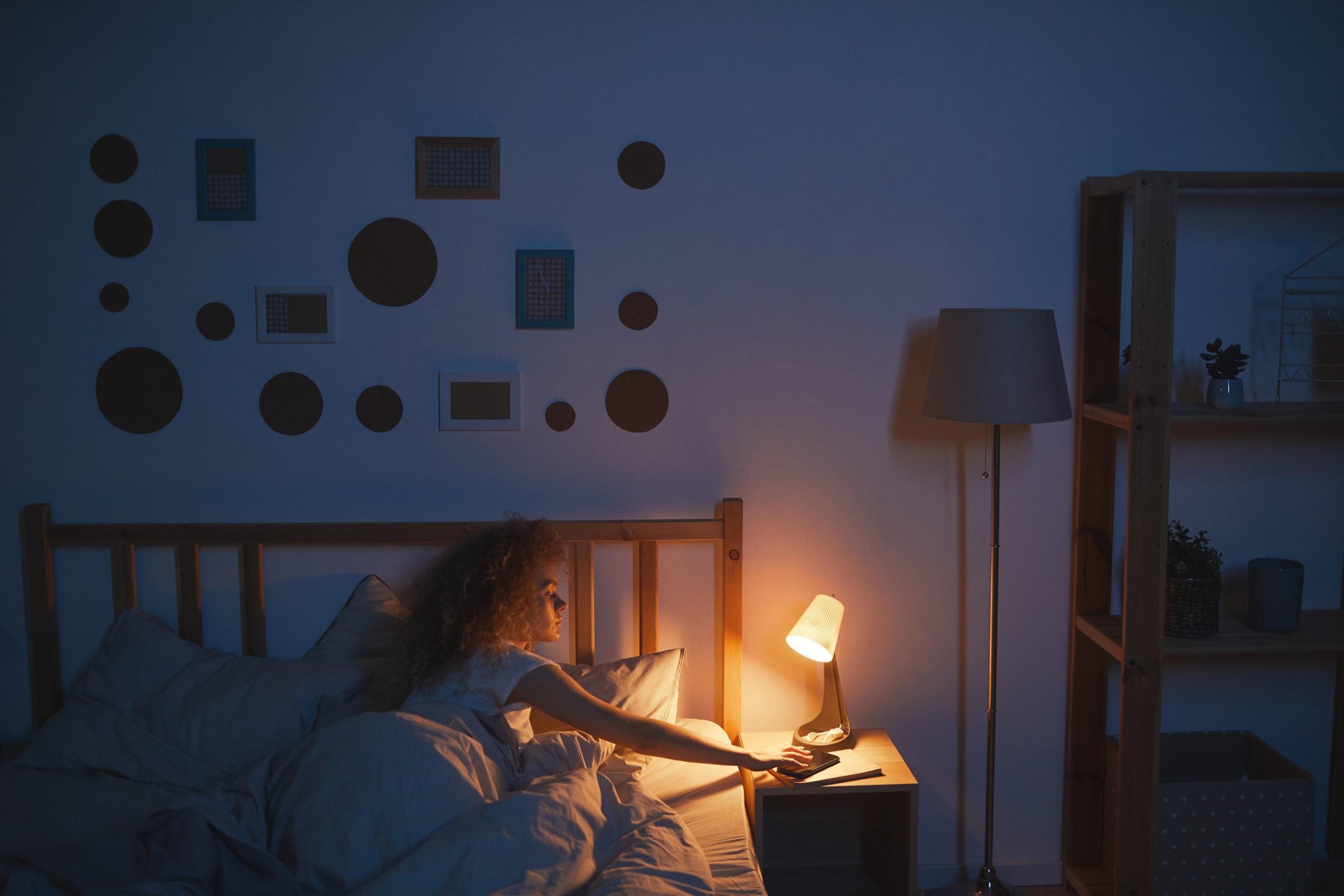How to Get More Sleep
Amy Barczy
| 4 min read
Amy Barczy is a former brand journalist who authored content at Blue Cross Blue Shield of Michigan. Prior to her time at Blue Cross from 2019-2024, she was a statewide news reporter for MLive.com. She has a decade of storytelling experience in local news media markets including Lansing, Grand Rapids, Holland, Ann Arbor and Port Huron.

We tend to normalize ignoring our needs; whether it’s skipping lunch to fit in an extra assignment at work or pulling out our phone late at night to respond to emails. But often these small actions can lead to a bad night’s sleep – which leaves you feeling depleted the next day. One bad night’s sleep won’t wreck your health. But over time, not prioritizing good quality sleep can have effects on your physical and mental health. Sleep is critical to helping your body repair its muscles and consolidate its memories. Regularly getting enough sleep is a big challenge for many Americans: 35% of adults say they sleep for less than seven hours each night. Adults who got less than seven hours of sleep each night were more likely to report 10 chronic health conditions – including arthritis, depression, diabetes, asthma, and cancer. Sleep deprivation can affect your memory, judgement and mood. But a small change can make a difference: research indicates most Americans would be happier, healthier and safer if they got an extra 60 to 90 minutes of sleep each night. As you consider what changes you may want to make in the New Year, consider making sleep a priority in your life.
Set up your sleep environment
Identify what kind of environment helps you sleep the best. Do you like complete darkness? Invest in some blackout curtains for your windows. Do you like white noise? There are white noise machines that are relatively inexpensive. Do you like to be cold? Try adding a fan to your room. These are some examples of small changes you can make to your bedroom to optimize the environment for you to sleep. Bigger changes might include getting a new mattress that’s suited for your comfort level. Reading before bed is also a good way to wind your mind down before sleep, so a small reading light may be useful in your bedroom.
Start your sleep routine early
Start getting ready for bed in the afternoon. No, this doesn’t mean putting your pajamas on before dinner. But it does mean cutting out caffeine after noon, and don’t consume any caffeine after 3 p.m. Making this small change will help your body stick to its natural rhythms.
Consider a nap
If your life allows it, a short nap may help you better regulate your energy during the day. Keep naps to under an hour – any longer and you jeopardize interfering with your nighttime sleep.
Set boundaries with technology and lights
Modern life means we’re connected to screens throughout most of the day. But the light from screens – especially at night – can affect our body’s natural rhythms that allow it to fall asleep. Start setting boundaries with technology and lights. Turn off the TV at least an hour before going to sleep and keep the lights low in your home at night. Put your work aside at night and disconnect from your phone and emails in the evening hours. Instead of scrolling through social media right before bed, try reading a book or doing some gentle stretches to wind down after a long day.
Connect with the sun
Our ability to fall asleep and wake up is a part of the natural circadian rhythm our bodies have. This internal clock is directly influenced by daylight from the sun. Though it’s hard in the Midwest to get a lot of sunlight in the winter months, take a moment in the morning to connect to sunlight or as much light as you can find to trigger your body’s sleep-wake cycle.
Be gentle with expectations
If you are in a transition period – like if you had a new baby, are caring for a sick family member or grieving a loss – do your best to get the best quality sleep while you can. While you might not be getting as much sleep as you optimally need, setting a good sleep environment, keeping your boundaries with technology and fitting in naps will help you get through this difficult time. More from MIBluesPerspectives.com:
- Melatonin Overuse on the Rise
- Five Healthy Habits to Make by Age 35
- Stress and Aging: What Millennials Should Know
Photo credit: Getty Images





